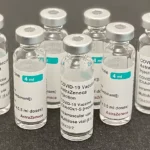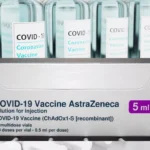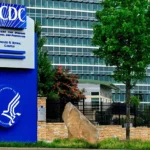The parents of a woman who died after receiving the Covishield vaccine have announced their intention to file a lawsuit against the Serum Institute of India (SII). This decision follows AstraZeneca's recent court admission that its vaccine can cause a rare but serious side effect known as thrombosis with thrombocytopenia syndrome (TTS), characterized by blood clots and low platelet counts. The parents, seeking justice for their daughter's death, argue that both AstraZeneca and SII failed to act responsibly when evidence of these risks first emerged.

Venugopalan Govindan, the father of the deceased, expressed his frustration, stating that the admission from AstraZeneca came “too late” after numerous fatalities. He criticized AstraZeneca and SII for continuing the vaccine's distribution despite early warnings from several European countries that had either suspended or limited the vaccine's use due to reported blood clot incidents. Govindan believes that regulatory bodies and manufacturers are accountable for not halting the vaccine's rollout sooner.
The family's legal petition demands compensation and the establishment of an independent medical board to investigate the death. They insist the vaccine was aggressively marketed as “safe and effective” without sufficient supporting data. The case aims to bring to light the negligence involved and prevent similar tragedies in the future.
AstraZeneca’s Admission and Global Reactions
AstraZeneca's acknowledgment in court documents that its vaccine could cause TTS has fueled the parents' resolve. This admission came amid a class-action lawsuit in the UK, where victims are seeking compensation for injuries and deaths allegedly caused by the vaccine. AstraZeneca maintained that the causal mechanism behind TTS remains unknown, but this has done little to quell the growing public and legal backlash.
Globally, the vaccine, marketed as Covishield in India and Vaxzevria elsewhere, has faced significant scrutiny. In April 2021, the European Medicines Agency (EMA) and the UK Medicines and Healthcare Products Regulatory Agency (MHRA) both linked the vaccine to blood clots but advised that its benefits outweighed the risks. However, the accumulation of adverse effects and subsequent legal challenges have painted a more complex picture of the vaccine's safety profile.
The lawsuit against AstraZeneca and SII highlights the tension between public health imperatives and pharmaceutical accountability. While the vaccine was crucial in the global fight against COVID-19, the emerging data on side effects has prompted calls for greater transparency and responsibility from vaccine manufacturers.
Impact and Implications for Vaccine Safety
The implications of this lawsuit are significant, not only for the families affected but also for public trust in vaccines. The case underscores the need for rigorous post-marketing surveillance and swift action when identifying potential risks. The failure to adequately communicate and manage these risks has led to a loss of trust that could impact future vaccination efforts.
The lawsuit represents a serious challenge to the Serum Institute of India's reputation. As the world's largest vaccine manufacturer, SII has played a pivotal role in the global vaccination campaign. However, this legal battle could compel the institute to reassess its safety protocols and response strategies in the face of adverse event reports.
The parents' lawsuit against SII and AstraZeneca serves as a reminder of the critical importance of vaccine safety and the ethical responsibilities of pharmaceutical companies. It calls for a balanced approach that prioritizes public health and individual safety, ensuring that life-saving interventions do not come at an unacceptable human cost.

Carl Riedel is an experienced writer and Open Source Intelligence (OSINT) specialist, known for insightful articles that illuminate underreported issues. Passionate about free speech, he expertly transforms public data into compelling narratives, influencing public discourse.













